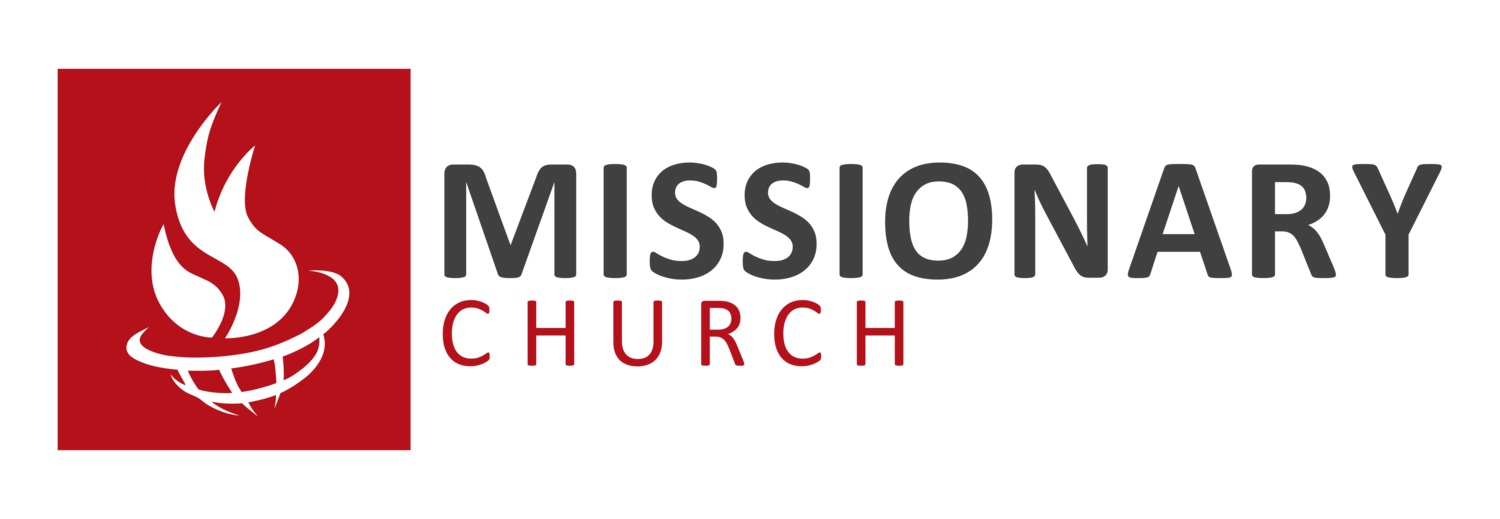
Course info
Home
-
Description text goes here
-
Description text goes here
Students
Español
TUITION COSTS
Initial Costs
Miscellaneous Costs
PLI Courses Offered
Please note that not all courses are offered every semester. If you would like to find out when a particular course will be offered next, please email us at pliadmin@mcusa.org.
Completing eight Level Two courses as well as the second half of the PLI Internship earns a Pastoral Foundations Certificate and meets the educational requirements for ordination in the Missionary Church (subject to approval by the district). *required for ordination
Level One Courses
-
An introduction to methods of Bible study and to the principles of biblical interpretation, with an emphasis on an inductive approach to biblical interpretation
-
In this course students are introduced to the literature, message, background, geography, archaeology, and relevance of the Old Testament for constructing a biblical worldview and way of life.
-
A study of the literature, historical background, geography and significance of the books of the New Testament, this course emphasizes learning the structure, main themes, and interpretation of key verses and passages in each NT book as well as basic terms and facts.
-
This course exposes students to theology through a systematic approach, particularly in a Wesleyan/Arminian context, with a focus on the doctrines of God, Christology, pneumatology, creation and man.
-
With an historical-systematic approach this course explores the theological study of the doctrines of the work of the Holy Spirit, the gifts and fruit of the Spirit, the church and its order and ordinances, and the end times. Systematic Theology 2 attempts to give a coherent explanation of the doctrines of sanctification, ecclesiology, and eschatology, based primarily upon the Bible, from the context of culture, using current idiom, and related to issues in life.
-
This course attempts to produce the best beginning preachers possible outside of a conventional classroom and within a short course period. The student will learn the fundamentals of the theology (purpose) of preaching as well as the practical aspects of expository preparation and preaching, storytelling, use of illustrations, and culturally sensitive preaching.
-
This course explores the principles of Christian leadership that create the underpinnings of every successful local church. The student will examine principles of leadership from a biblical basis and will learn to apply those principles to their specific local church situations so that they become adept at exercising active leadership.
-
This course gives the student a foundational introduction to the content, discipline and practical application of biblical theology to serve as the foundation for practical ministry, systematic theology and the construction of a biblical way of understanding things, a biblical world view.
-
One of the most satisfying and tangible results of your Ministry Internship will be the completion of your Performance-based Portfolio which is the capstone of your PLI journey. This course will guide you in understanding as well as implementing the core elements of your internship experience. The completed capstone project will serve as a ministry guidebook, as well as demonstrate to others (i.e., pastor search committees, denominational leaders) your proficiency as a pastor-leader and theologian.
This level 1 course begins work towards the Capstone, and is required for level 1 completion.
Level Two Courses
-
This course will teach students the basic skills of pastoral care — caring for the congregant as well as for the pastor himself and his family. Basic counseling, behavior and psychological pre-diagnosis, and referral techniques are presented in this course.
-
This course examines basic principles of administration and management of the local church. The student will examine the difficult balance between a spiritually focused organism of ministry and maintaining proper order and structure to keep the organization functioning smoothly. This study will focus on the “how to’s” of leading the local church.
-
This course covers the pedagogical and administrative issues related to effective Christian education, combining theoretical, theological, educational, and philosophical understandings of Christian education with practical experience in using creative methods. Particular emphasis is placed on developing the skills necessary for effective teaching and leadership in the local church setting.
-
Students will discover what makes a healthy church and how to develop health in an existing church.
-
The study of the missional church touches on the classical fields of evangelism, small groups, church growth, global missions, church planting, volunteerism, and Christian service.
-
This new course will focus on the Servant Leader as World Changer by looking through the lense of contemporary issues that call for personal and organizational change. The concept of Servant Leadership and how it differs from other leadership theories will be explained. Mission and vision, strategic planning, organizational change models, and other best practices for meaningful and purposeful change within the context of your world (personal, work, ministry, family) will also be explored.
-
This course will study the history of the Christian Church from its beginnings to the Reformation period, revealing the individuals who have impacted the church over the centuries and closely examining the scriptural issues which have preserved, sustained, and strengthened it.
-
New Course - launch date 2023
-
This hybrid courses, with 60% in class learning and 40% outside of class independent learning, will explore the conversion, life, leadership, and ministry events of Paul the Apostle; as found in the book of Acts and his own letters against the backdrop of the missionary expansion of early Christianity. At the conclusion of this course, learners will:
1.Understand the major themes of Paul’s view of Christianity as reflected in hislife and letters.
2.Trace the crucial events that inform ministry markers of the Apostle Paul andexplain his transformational influence.
3.Demonstrate skill in applying the theology and pastoral insights of Paul’s letters to themselves, the contemporary church, and the world at large.
-
This course on spiritual warfare ministry includes both biblical and practical foundations for the application of spiritual warfare principles in life, work, and ministry settings. We will explore how to set ourselves and others free from every confrontation of Satan, his agents, helpers, and spirits. We will explore how to take our delegated authority in Christ into the darkness where people are in bondage to demonic forces and how to minister to such people.
We will dive deep into such practical areas like - Spiritual Warfare in a Digital and Multimedia Generation and also Spiritual Warfare and Implementation of the Great Commission in All Its Fullness.
-
Focused on a commitment to personal and corporate spiritual formation, students develop self-awareness and insight in their spiritual journey, learn to exercise inward and outward spiritual disciplines, and develop a personal growth plan.
-
This course will equip students with a Scriptural, practical, and reproducible strategy for disciplemaking personally, in community, and as a church.
-
One of the most satisfying and tangible results of your Ministry Internship will be the completion of your Performance-based Portfolio which is the capstone of your PLI journey. This course will guide you in understanding as well as implementing the core elements of your internship experience. The completed capstone project will serve as a ministry guidebook, as well as demonstrate to others (i.e., pastor search committees, denominational leaders) your proficiency as a pastor-leader and theologian.
This Capstone class builds on the work started in PL800 level 1 course.
About our Courses
-
The successful student will…
Acquire the skill of situational analysis.
Develop an internally consistent set of Biblical leadership principles.
Successfully apply those principles to current situations through the implementation of specific precepts.
Improve ministry potential through identifying personal strengths and weaknesses in leadership, with a goal of polishing leadership strengths and correcting leadership weaknesses. The student’s DISC profile will be examined to this end.
Understand how personal wiring for ministry based on results from the “Ministry Styles” assessment.
-
Class format will consist of the following components:
Chat Attendance and Active Participation (10%)
The eProf will evaluate classroom involvement based on the quality and quantity of responses, including questions asked. Though chat attendance and participation will not earn any points, it is mandatory to attend chats. Missing more than two chats will result in an Incomplete.
Weekly Reading & Learning Report (20%)
Reading should be completed before each weekly class, and Weekly Reading & Learning Reports (form available at course site) should be emailed to the eProf before chat on the following week (e.g., Learning Report for week #1 is due before Chat #2). Reading assignments are listed below on the Assignment Chart.
Alternate Weekly Reading Learning Assignment
There are many excellent articles and books on Christian leadership principles. You may choose one of them as a substitute for any of the reading assignments on the assignment chart below, read it, and report on it for the rest of the class. (This alternate reading assignment may be used in place of a maximum of 5 class readings.)
Book Report (15%)
Read Barton’s “Strengthening the Soul of Your Leadership”. In a 2-3 page written report (submitted to the eProf by email) describe what the book is about, its scriptural basis, and how your life and leadership will be different going forward.
Leaders Reports (10%)
Choose two persons listed in the Index of Persons in Spiritual Leadership (pp 187-189) and/or the Index of Names in Transforming Leadership (pp 319-320). Write a report on each person chosen telling why they are considered to be leaders and discussing the major leadership qualities of each.
Interpretative Assignment (15%)
Choose one of the ten major categories of leadership we will be discussing each week (e.g., “Living in a Glass House” from week 4) and make a scriptural case for the issue based on at least 7-8 scripture references. Using one of these references, conduct an exegetical study as to its original meaning and then show its theological meaning as to how it would apply and impact you and your ministry.
Leadership Project Paper (20%)
Write a 3- to 5-page paper (submitted to the eProf by email) examining your own leadership style in light of leadership principles learned in this course and how your style relates to the way you do ministry. Address any issues discovered with a personal plan of action to hone your leadership skills and improve your future ministry.
Ministry Styles Assessment (10%)
Complete the Ministry Styles assessment (available online, instructions provided at course site).
-
Papers (report, chart, etc.) must be emailed as an attachment to the eProf; no USPS papers will be accepted. Transfer the chat dates from the Course Detail Sheet (available at the course site) to the assignment chart below for assignment due dates. Comments to the paper will be added by the eProf in a different font color. Papers must be written in the following format:
Papers must be submitted in Microsoft Word format (feel free to use any software that can save in MS Word format — .doc or .docx).
MLA style standards must be utilized for citations, headers, and other page formatting issues (for reference, note: http://owl.english.purdue.edu/handouts/research/r_mla.html).
Font must be black, Times New Roman, 12pt.
Spacing must be double space for both regular and quotation text.
Margins must be exactly one inch on all four sides.
Pages must be numbered.
Quotations from other sources are restricted to eight double-spaced lines. Quotations should not dominate from a single source, but must demonstrate a breadth of resources.
Title page must include: 1) Student Name, 2) “PL271: Fundamentals of Christian Leadership,” 3) Date, and 4) eProf Name.
Brevity with concise, condensed thinking scores highest. You must edit and re-edit and re-edit to fit all your thoughts into the required number of pages.
Writing must be in a style publishable for a popular book or magazine. Academic writing styles and standards are not required.
Papers must be proofread by both the student and another person before submitting.
-
Share your assignment schedule with your coach at the beginning of this course.
Your coach will not have a hand in the grading of your work, but will assist you in understanding and applying leadership principles.
If an assignment is unclear, consult your eProf for assistance. Your coach is free to contact your eProf if that would help you.
Use your coach to hold you accountable in your balance of time. Do not become overwhelmed at the workload, but allow your coach to assist you in finding balance.
Evaluation
Grading
* below C- is Incomplete
Assignment Chart
SL = Spiritual Leadership;
TL = Transforming Leadership;
UL = Understanding Leadership




